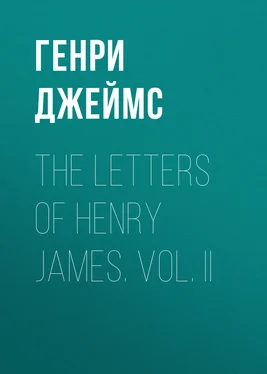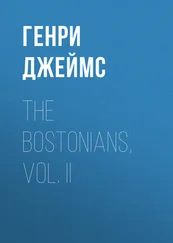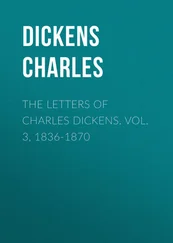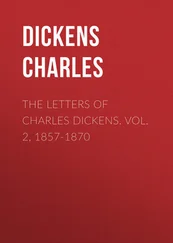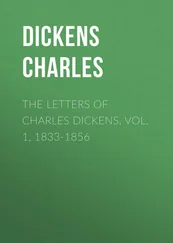Генри Джеймс - The Letters of Henry James. Vol. II
Здесь есть возможность читать онлайн «Генри Джеймс - The Letters of Henry James. Vol. II» — ознакомительный отрывок электронной книги совершенно бесплатно, а после прочтения отрывка купить полную версию. В некоторых случаях можно слушать аудио, скачать через торрент в формате fb2 и присутствует краткое содержание. Жанр: Биографии и Мемуары, foreign_antique, foreign_prose, на английском языке. Описание произведения, (предисловие) а так же отзывы посетителей доступны на портале библиотеки ЛибКат.
- Название:The Letters of Henry James. Vol. II
- Автор:
- Жанр:
- Год:неизвестен
- ISBN:нет данных
- Рейтинг книги:4 / 5. Голосов: 1
-
Избранное:Добавить в избранное
- Отзывы:
-
Ваша оценка:
- 80
- 1
- 2
- 3
- 4
- 5
The Letters of Henry James. Vol. II: краткое содержание, описание и аннотация
Предлагаем к чтению аннотацию, описание, краткое содержание или предисловие (зависит от того, что написал сам автор книги «The Letters of Henry James. Vol. II»). Если вы не нашли необходимую информацию о книге — напишите в комментариях, мы постараемся отыскать её.
The Letters of Henry James. Vol. II — читать онлайн ознакомительный отрывок
Ниже представлен текст книги, разбитый по страницам. Система сохранения места последней прочитанной страницы, позволяет с удобством читать онлайн бесплатно книгу «The Letters of Henry James. Vol. II», без необходимости каждый раз заново искать на чём Вы остановились. Поставьте закладку, и сможете в любой момент перейти на страницу, на которой закончили чтение.
Интервал:
Закладка:
To Hugh Walpole
My dear young friend Hugh Walpole,
I had from you some days ago a very kind and touching letter, which greatly charmed me, but which now that I wish to read it over again before belatedly thanking you for it I find I have stupidly and inexplicably mislaid—at any rate I can't to-night put my hand on it. But the extremely pleasant and interesting impression of it abides with me; I rejoice that you were moved to write it and that you didn't resist the generous movement—since I always find myself (when the rare and blest revelation—once in a blue moon—takes place) the happier for the thought that I enjoy the sympathy of the gallant and intelligent young. I shall send this to Arthur Benson with the request that he will kindly transmit it to you—since I fail thus, provokingly, of having your address before me. I gather that you are about to hurl yourself into the deep sea of journalism—the more treacherous currents of which (and they strike me as numerous) I hope you may safely breast. Give me more news of this at some convenient hour, and let me believe that at some propitious one I may have the pleasure of seeing you. I never see A.C.B. in these days, to my loss and sorrow—and if this continues I shall have to depend on you considerably to give me tidings of him. However, my appeal to him (my only resource) to put you in possession of this will perhaps strike a welcome spark—so you see you are already something of a link. Believe me very truly yours,
HENRY JAMES.To George Abbot James
My dear dear George—
How I wish I might for a while be with you, or that you were here a little with me! I am deeply touched by your letter, which makes me feel all your desolation. Clearly you have lived for long years in a union so close and unbroken that what has happened is like a violent and unnatural mutilation and as if a part of your very self had been cut off, leaving you to go through the movements of life without it—movements for which it had become to you indispensable. Your case is rare and wonderful—the suppression of the other relations and complications and contacts of our common condition, for the most part—and such as no example of seems possible in this more infringing and insisting world, over here—which creates all sorts of inevitabilities of life round about one; perhaps for props and crutches when the great thing falls—perhaps rather toward making any one and absorbing relation less intense—I don't pretend to say! But you sound to me so lonely—and I wish I could read more human furniture, as it were, into your void. And I can't even speak as if I might plan for seeing you—or dream of it with any confidence. The roaring, rushing world seems to me myself—with its brutal and vulgar racket—all the while a less and less enticing place for moving about in—and I ask myself how one can think of your turning to it at this late hour, and after the long luxury, as it were, of your so united and protected independence. Still, what those we so love have done for us doesn't wholly fail us with their presence—isn't that true? and you are feeling it at times, I'm sure, even while your ache is keenest. In fact their so making us ache is one way for us of their being with us, of our holding on to them after a fashion. But I talk, my dear George, for mere tenderness—and so I say vain words—with only the fact of my tenderness a small thing to touch you. I have known you from so far back—and your image is vivid and charming to me through everything—through everything. Things abide— good things—for that time: and we hold together even across the grey wintry sea, near which perhaps we both of us are to-night. I should have a lonely Christmas here were not a young nephew just come to me from his Oxford tutor's. You don't seem to have even that. But you have the affectionate thought of yours always,
HENRY JAMES.To W.E. Norris
My dear Norris,
I have immensely rejoiced to hear from you to-night, though I swear on my honour that that has nothing to do with this inveterate—isn't it?—and essentially pious pleasure, belonging to the date, of making you myself a sign. I have had the sad sense, for too long past, of being horrid, however (of never having acknowledged—at the psychological moment—your beautiful and interesting last;) and it has been for me as if I should get no more than my deserts were you to refuse altogether any more commerce with me. Your noble magnanimity lifting that shadow from my spirit, I perform this friendly function now, with a lighter heart and a restored confidence. Being horrid (in those ways,) none the less, seems to announce itself as my final doom and settled attitude: I grow horrider and horrider (as a correspondent) as I grow more aged and more obese, without at the same time finding that my social air clears itself as completely as those vices or disfigurements would seem properly to guarantee. Most of my friends and relatives are dead, and a due proportion of the others seem to be dying; in spite of which my daily prospect, these many months past, has bristled almost overwhelmingly with People, and to People more or less on the spot, or just off it, in motors (and preparing to be more than ever on it again,) or, most of all haling me up to town for feverish and expensive dashes, in the name of damnable and more than questionable duties, interests, profits and pleasures—to such unaccountable and irrepressible hordes, I say, I keep having to sacrifice heavily. The world, to my great inconvenience—that is the London aggregation of it—insists on treating me as suburban—which gives me thus the complication without my having any of the corresponding ease (if ease there be) of the state; and appalling is the immense incitement to that sort of invasion or expectation that the universal motor-use (hereabouts) compels one to reckon with. But this is a profitless groan—drawn from me by a particularly ravaged summer and autumn, as it happens—and at a season of existence and in general conditions in which one had fixed one's confidence on precious simplifications. A house and a little garden and a little possible hospitality, in a little supposedly picturesque place 60 miles from London are, in short, stiff final facts that (in our more and more awful age) utterly decline to be simplified—and here I sit in the midst of them and exhale to you (to you almost only!) my helpless plaint. Fortunately, for the moment, I take the worst to be over. I've a young—a very young—American nephew who has come to me from his Oxford tutor to spend Xmas, and I have, in order to amuse him, engaged to go with him to-morrow and remain till Saturday with some friends six miles hence; but after that I cling to the vision of a great stretch of undevastated time here till April, or better still May, when I may go up to town for a month. Absorbing occupations—the only ones I really care for—await me in abysmal arrears—but I spare you my further overflow.
It has kept me really all this time from saying to you what I had infinitely more on my mind—how my sense of your Torquay life, with all that violent sadness, that great gust of extinction, breathed upon it, has kept you before me as a subject of much affectionate speculation. Of course you've picked up your life after a fashion; but we never pick up all —too much of it lies there broken and ended. But I seem to see you going on, as you're so gallantly capable of doing, in the manner of one for whom nothing more has happened than you were naturally prepared for in a world that you decently abstain from characterizing—and I congratulate you again on your mastery of the art of life—of the Torquay variety of it in particular. (We have to decide on the kind we will master—but I haven't mastered this kind!) I at any rate saw Gosse in town some three weeks ago, and he spoke of having seen you not long previous and of the excellent figure you made to him. (I didn't know you were there—but indeed a certain turmoil about me here—speaking as a man loving his own hours and his own company—must have been then, I think, at its thickest.) … I hope something or other pleasant has brushed you with its wing—and even that you've been able to put forth a quick hand and seize it. If so, keep tight hold of it—nurse it in your bosom—for 1909—and believe me, my dear Norris, yours always and ever,
Читать дальшеИнтервал:
Закладка:
Похожие книги на «The Letters of Henry James. Vol. II»
Представляем Вашему вниманию похожие книги на «The Letters of Henry James. Vol. II» списком для выбора. Мы отобрали схожую по названию и смыслу литературу в надежде предоставить читателям больше вариантов отыскать новые, интересные, ещё непрочитанные произведения.
Обсуждение, отзывы о книге «The Letters of Henry James. Vol. II» и просто собственные мнения читателей. Оставьте ваши комментарии, напишите, что Вы думаете о произведении, его смысле или главных героях. Укажите что конкретно понравилось, а что нет, и почему Вы так считаете.
